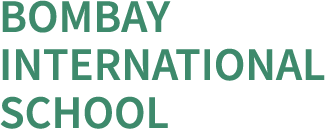By: Ms. Supriya Atal – Director of Studies
If you passed by a DP class at BIS, you are likely to find students debating issues portrayed through art/ cartoons/ stories. They are also likely to be engaged in researching which one they will address for their argumentative essay. After class, you will find these students setting up video calls with their teacher to discuss their essay outline along with discussing study goals for an upcoming test. These are snippets of a learning culture that revolves around student engagement, which is the main reason why the IB Diploma Programme at Bombay International School can be called personal, timeless and student-centric.
BIS students are compelled to become reflective thinkers and encouraged to learn through making errors. To build innovative mindsets, students are encouraged to step back from an obvious problem and view it from different perspectives. Rather than jumping into solution-finding, students are encouraged to first ask questions and engage in problem framing and reframing. When done effectively, this helps them see issues in a new light and become solutions-oriented. Walking up an ice-covered hill, slipping and stumbling, but eventually becoming swift and graceful is how one of our alumna described the experience in the DP.
The core in the IB Diploma helps to develop critical thinking, stimulate academic dialogue and reflect on how we perceive the world. The transferable nature of skills acquired through the core helps students do well in their academic subjects. The focus of Theory of Knowledge (ToK) is not on students acquiring new knowledge but on helping students to put into perspective what they already know. Students explore and reflect on knowledge and the process and method of knowing. The Extended Essay (EE) and ToK together provide intellectual rigour, enrich student learning and support cognitive demands in other subjects. It is not surprising then that while the TOK course is composed mainly of questions (“How do we know?”, “How can it be verified?”); the EE enables a student to write an academic research paper in a subject of their choice.
For the EE, great emphasis is placed on the research process, personal engagement in the exploration of the topic and on the development and communication of ideas. Students, teachers and universities attach great importance to this task because it provides practical preparation for the kind of undergraduate research required in higher education.
Our mission is to support students to create positive change in communities and the fundamental education philosophy at BIS is to create an environment where students see themselves as change-makers. Through the IB Diploma core, students acquire deliberate strategies, skills and attitudes that give them lifelong learning experiences to become agents of change. Time allocated to effort, attention and practice of skills helps support the IB learner profile that reinforces the development of dispositions to navigate a world ridden with complexity. This ethos, in synergy with skill development and capacity building in the IBDP, unlocks a higher potential which places the BIS student in a unique position. One where she/he can start thinking about solutions for the most pressing challenges of our time.



